
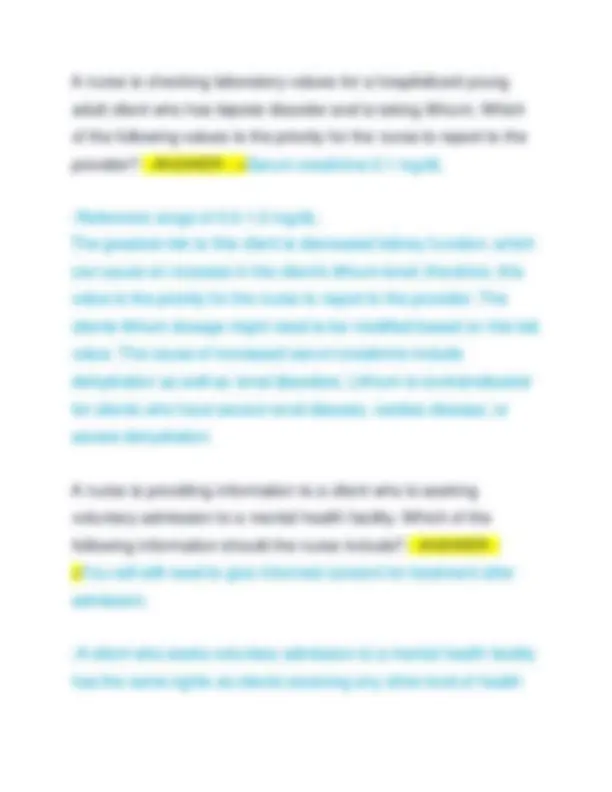
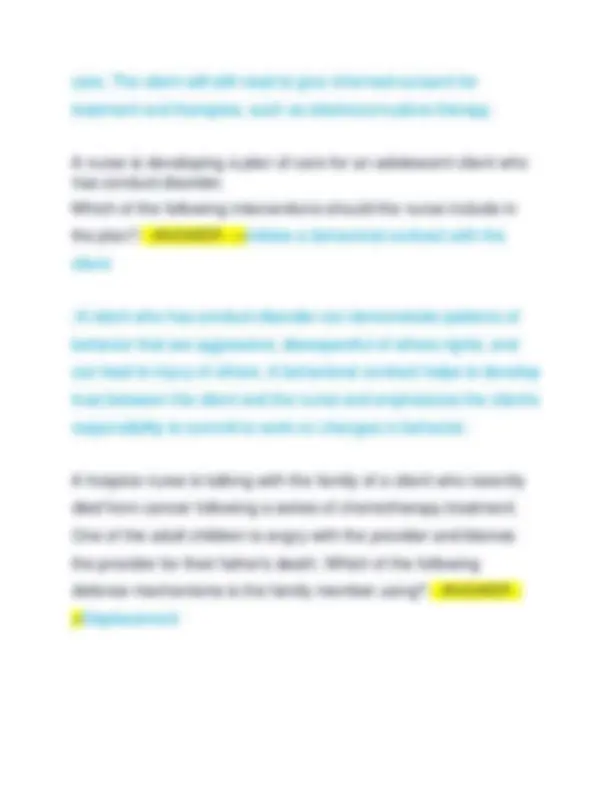
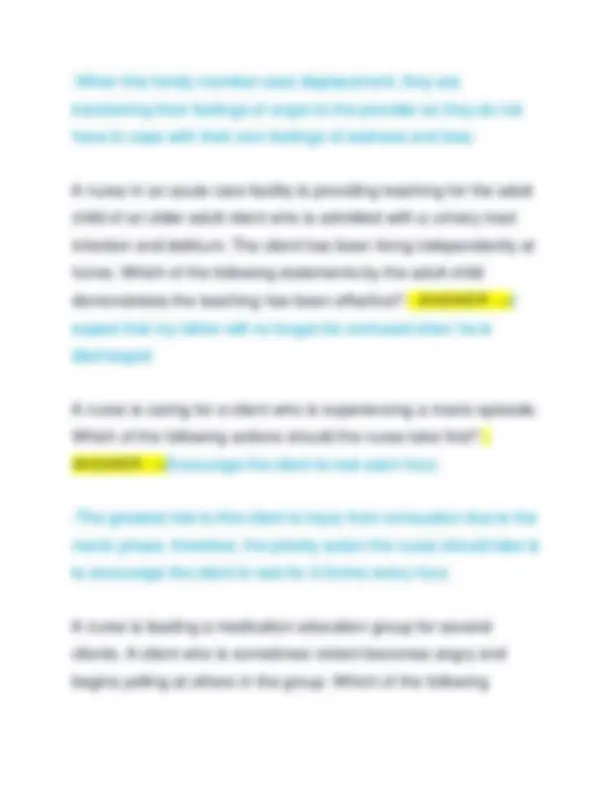
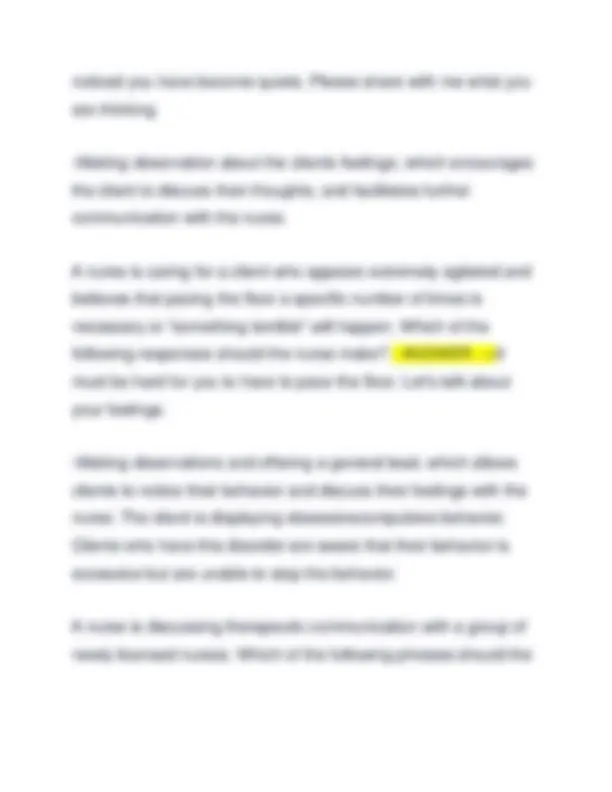
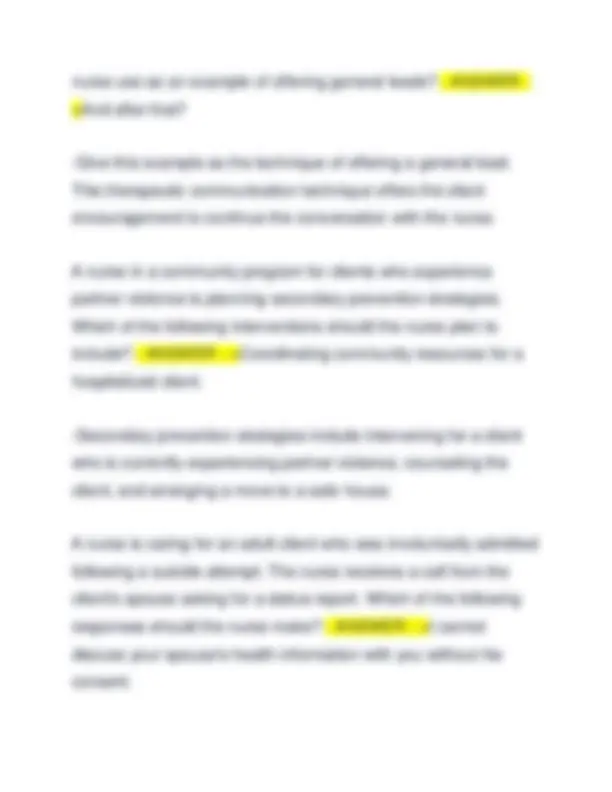
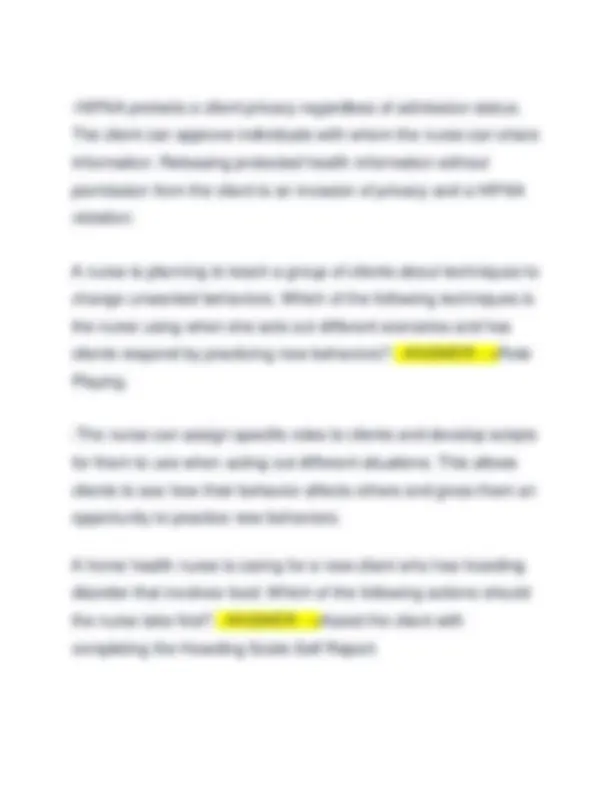
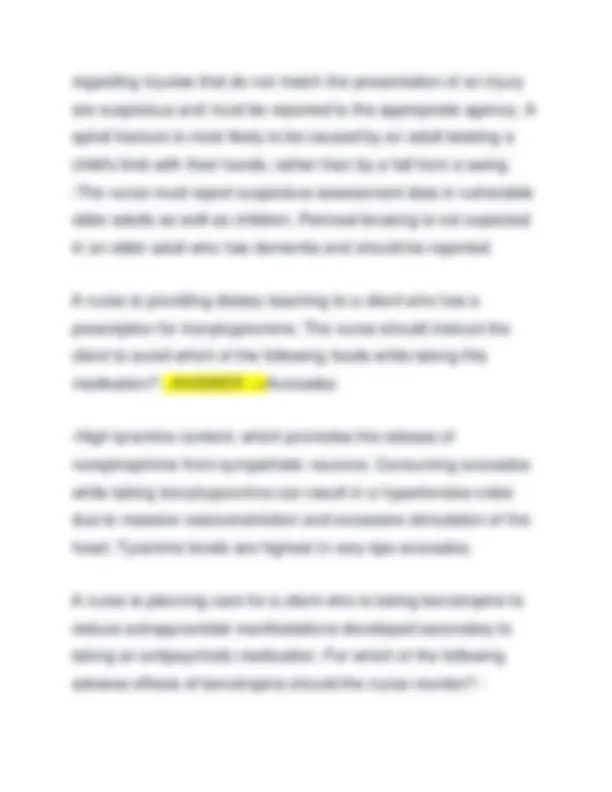
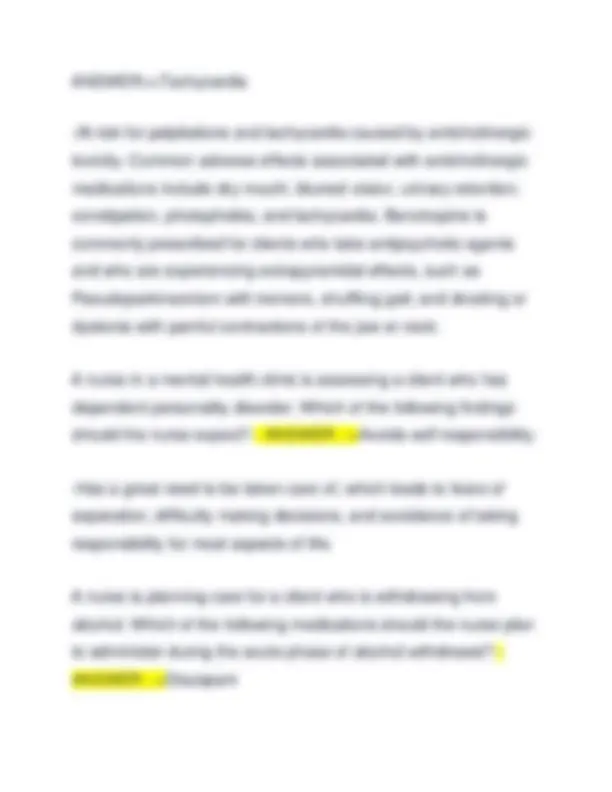
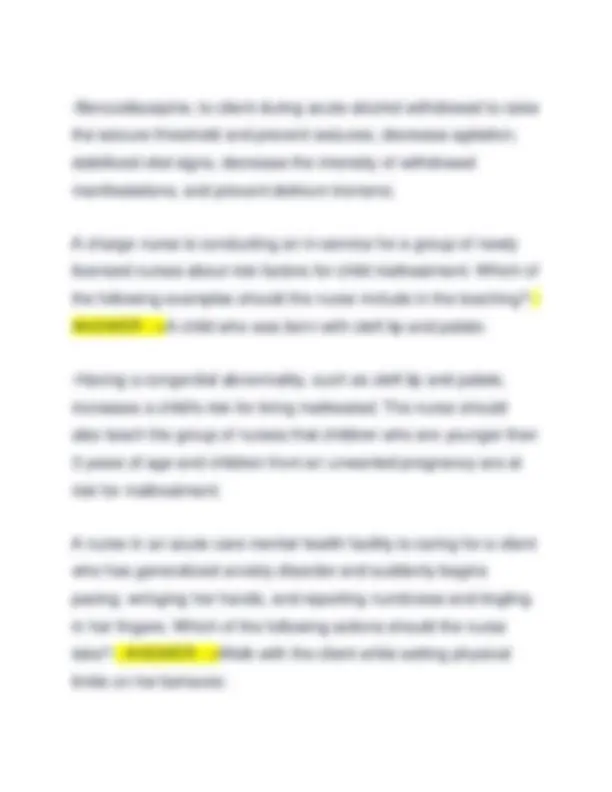
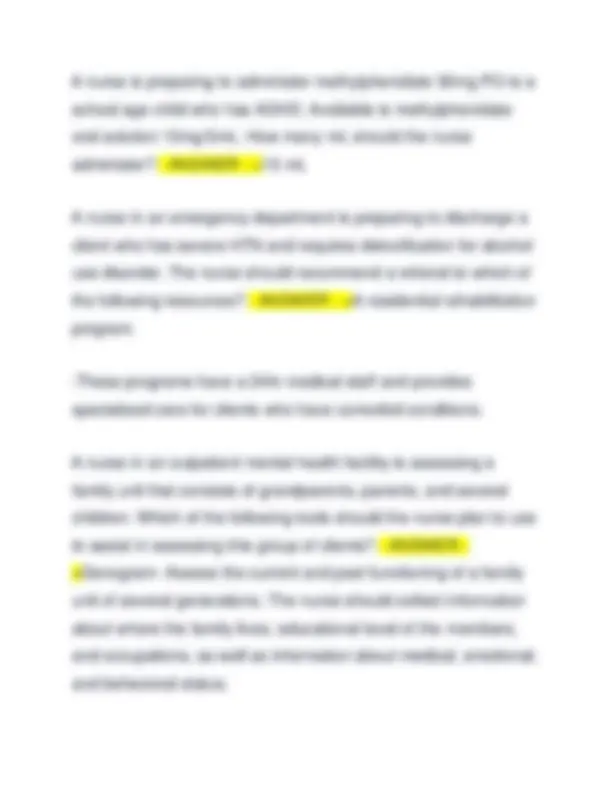
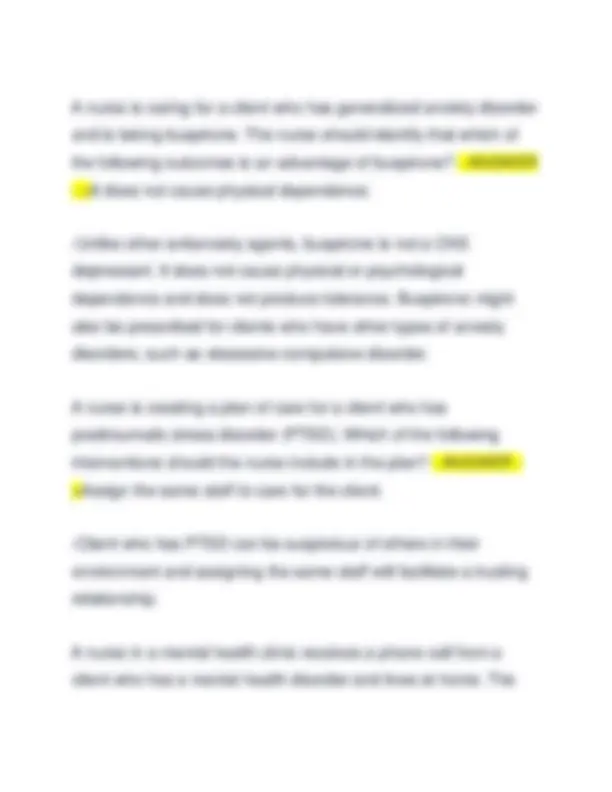
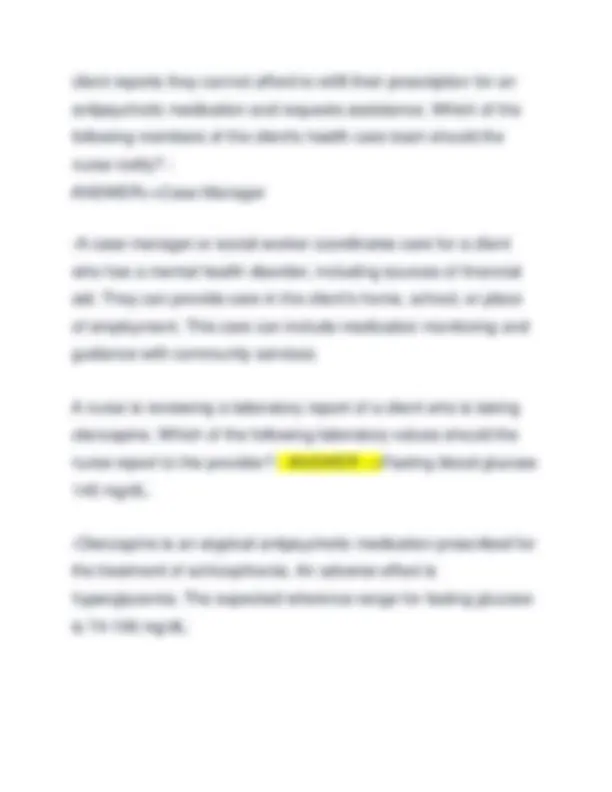
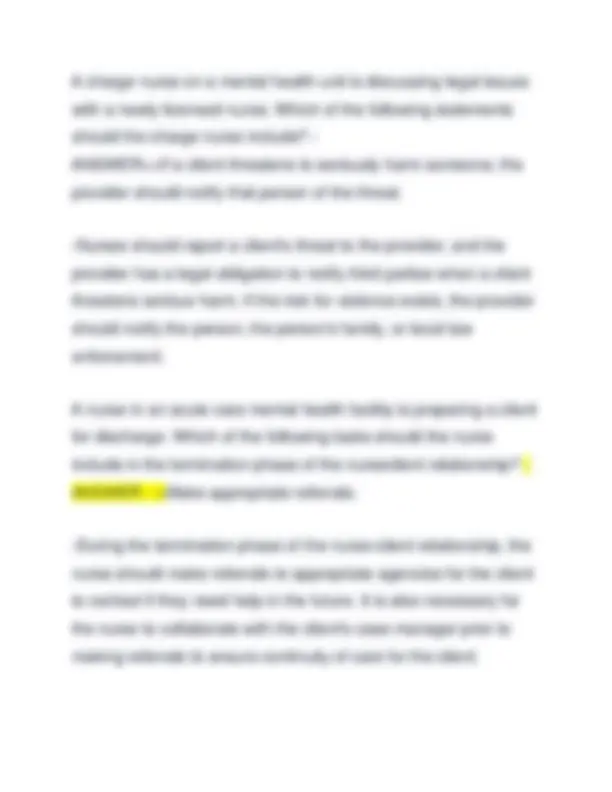
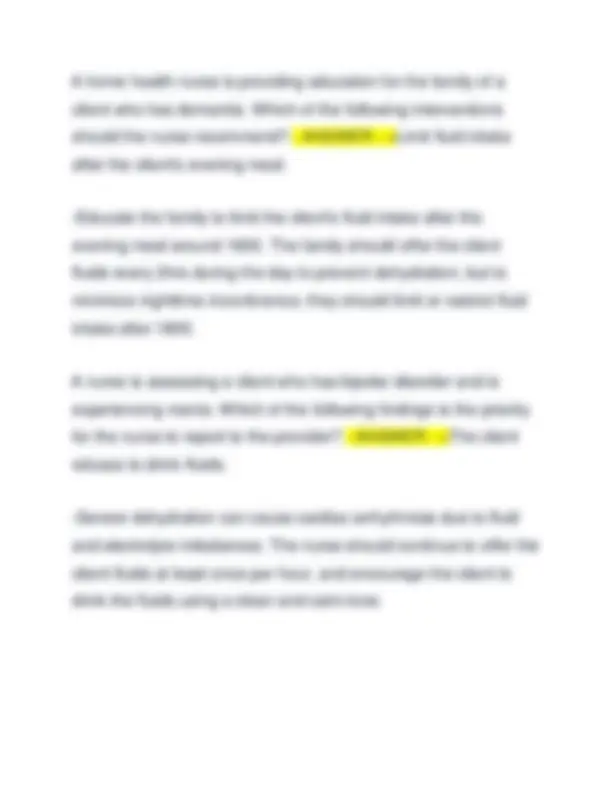
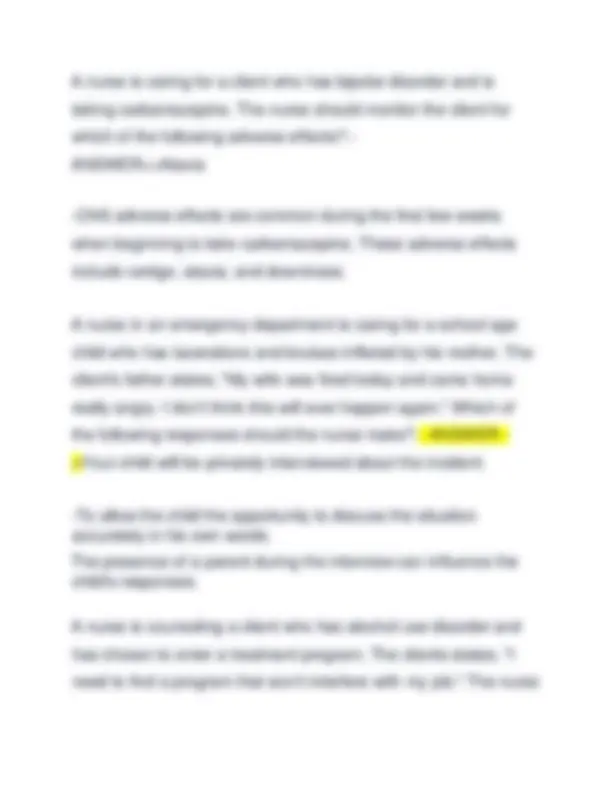
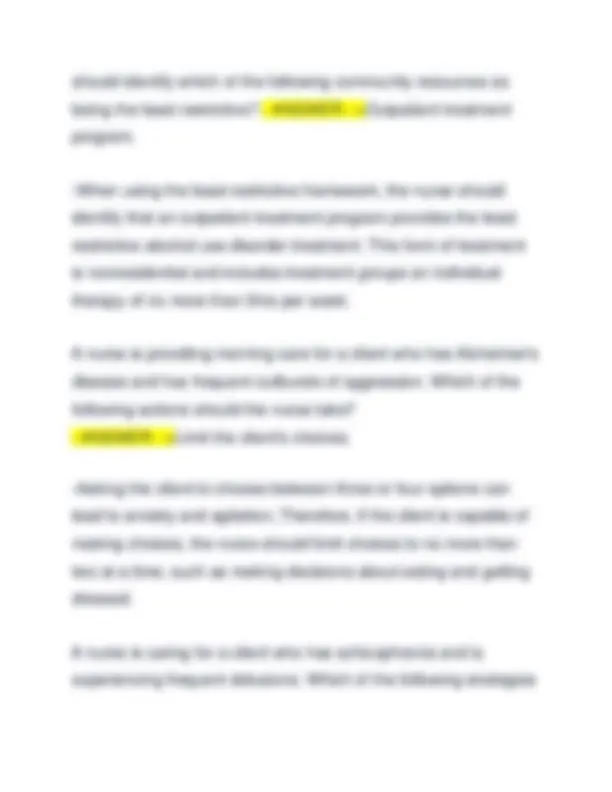
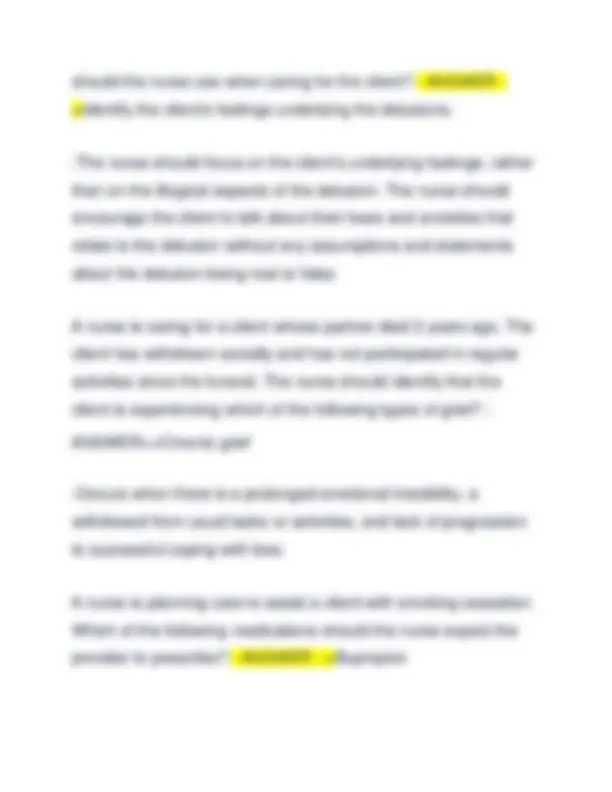
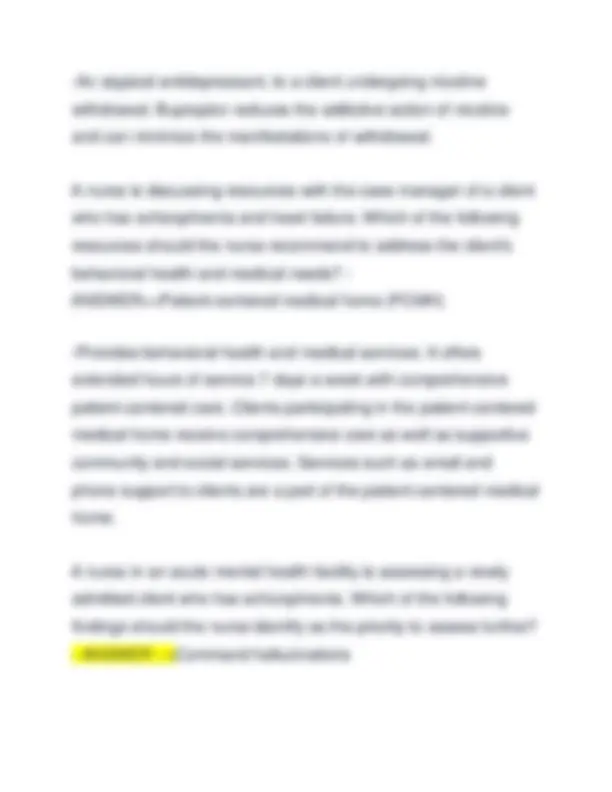
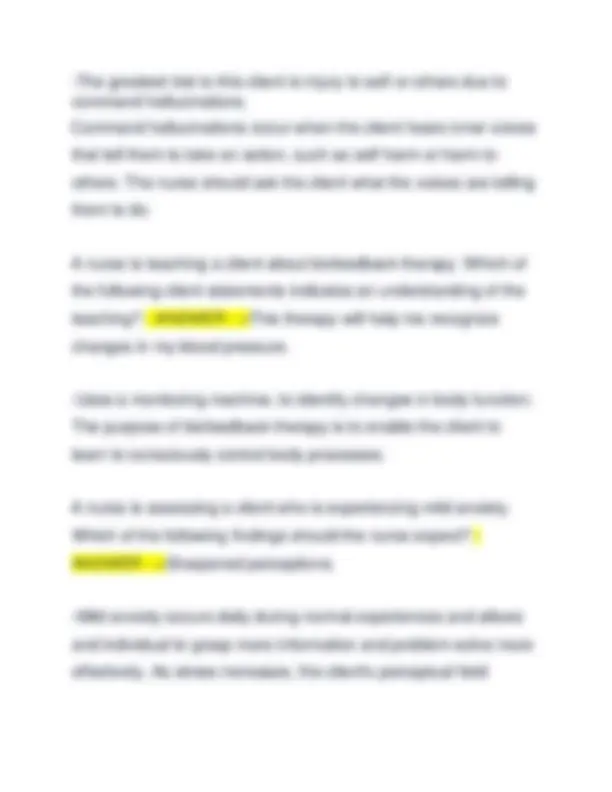
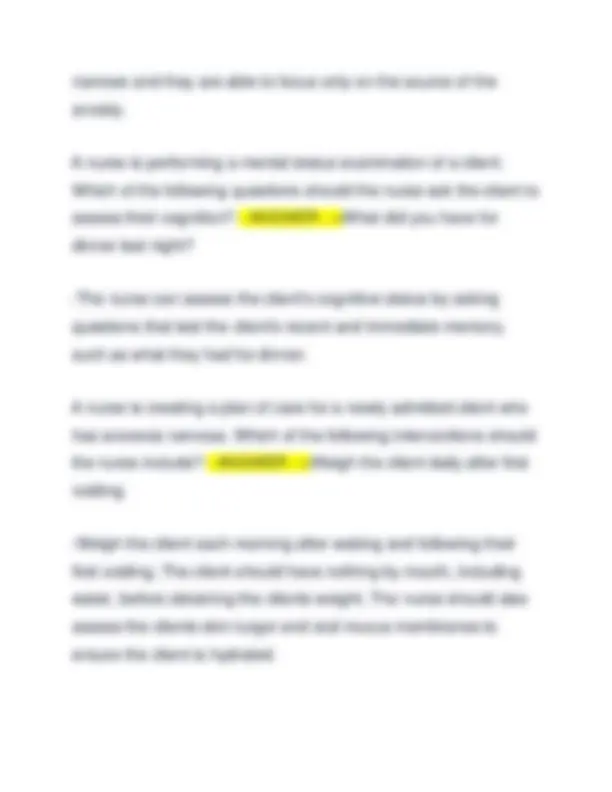
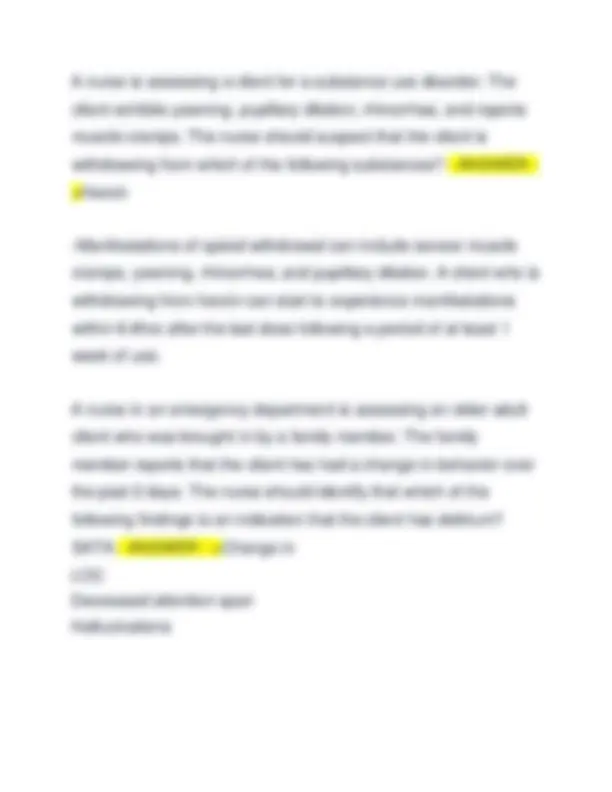
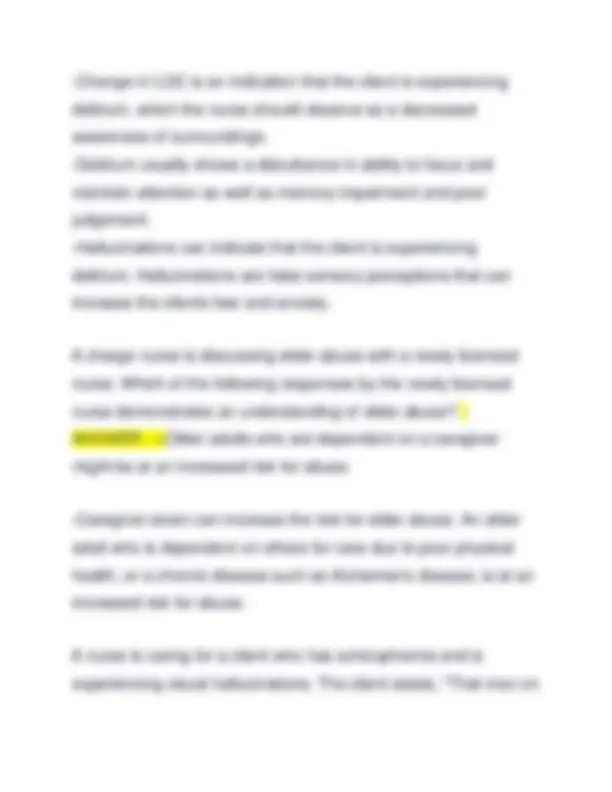
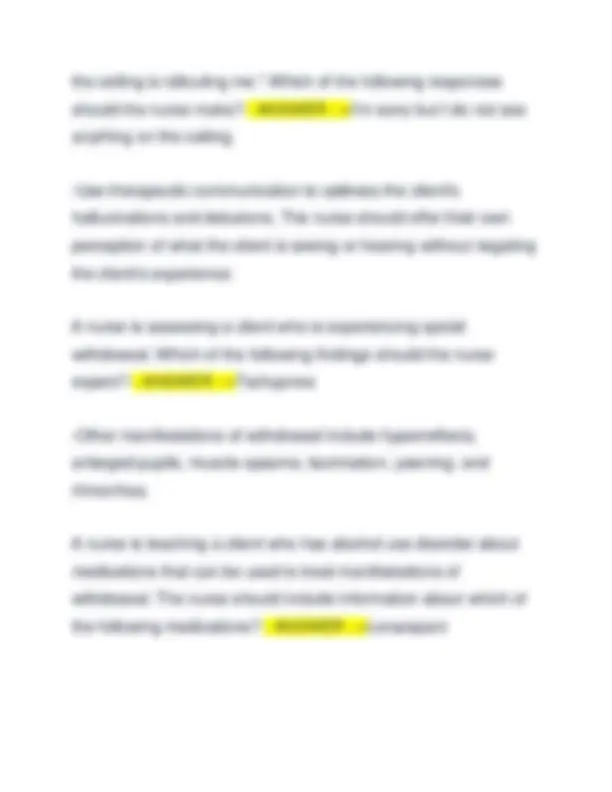
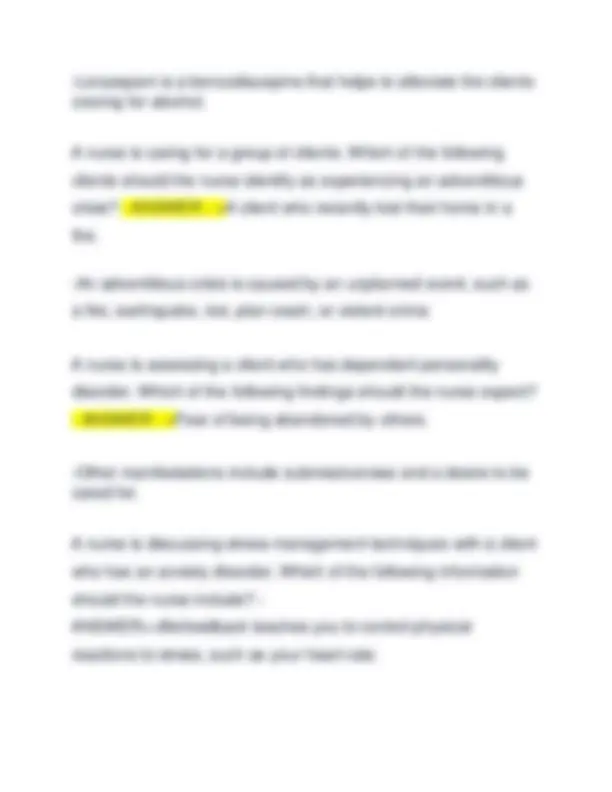
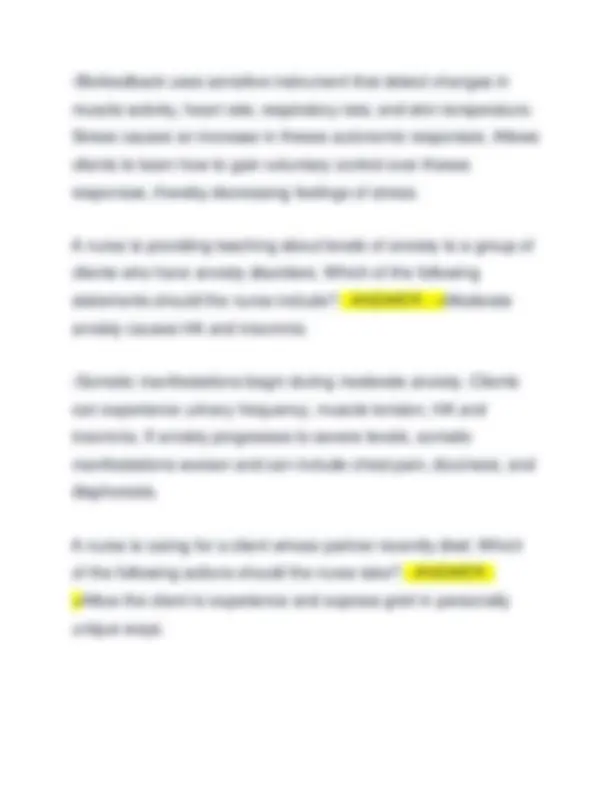
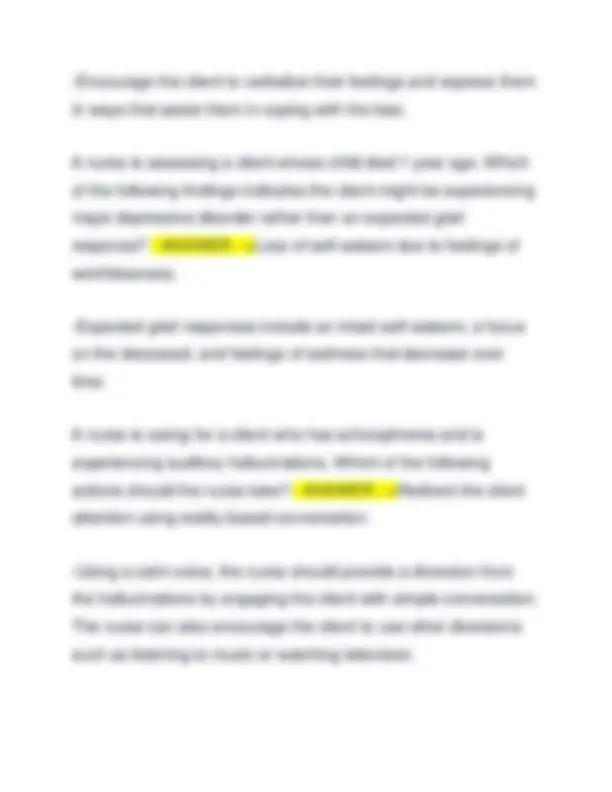
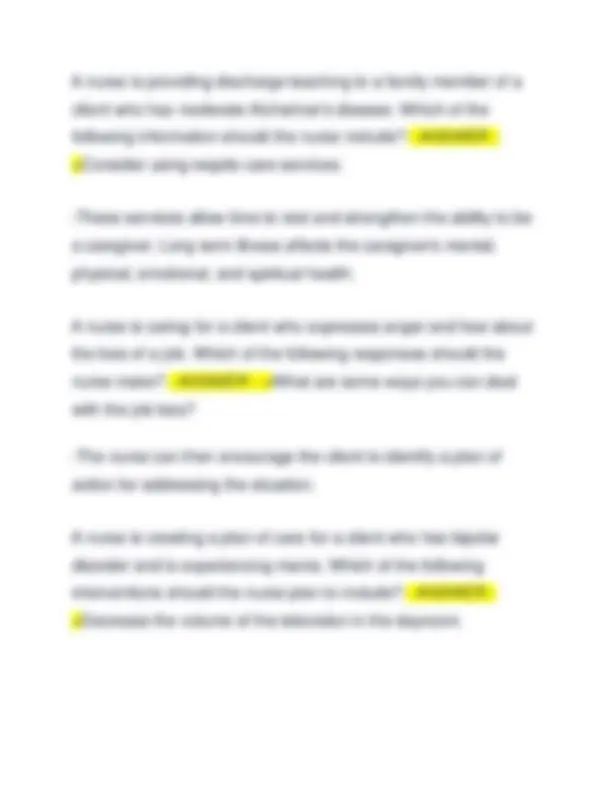
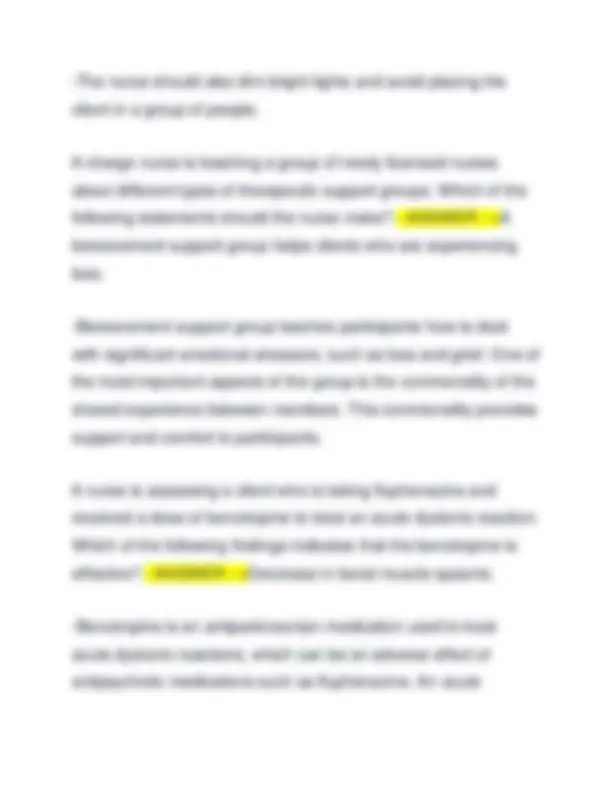
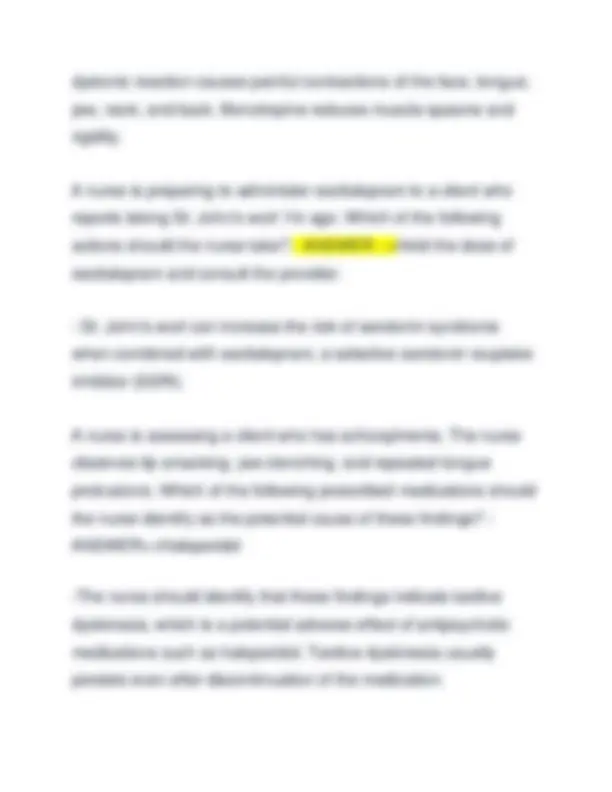


Study with the several resources on Docsity

Earn points by helping other students or get them with a premium plan


Prepare for your exams
Study with the several resources on Docsity

Earn points to download
Earn points by helping other students or get them with a premium plan
Community
Ask the community for help and clear up your study doubts
Discover the best universities in your country according to Docsity users
Free resources
Download our free guides on studying techniques, anxiety management strategies, and thesis advice from Docsity tutors
RN VATI MENTAL HEALTH RN VATI MENTAL HEALTH 2019 ASSESSMENT QUESTIONS WITH COMPLETE SOLUTIONS GUARANTEED PASS BRAND NEW 2025
Typology: Exams
1 / 37

This page cannot be seen from the preview
Don't miss anything!






























A nurse is planning care for a client following a suicide attempt. Which of the following interventions should the nurse include in the plan? - ANSWER - >Provide the client with plastic eating utensils.
A nurse is caring for an adolescent client who has anorexia nervosa. The client states, "Have I done any permanent damage to my body?" Which of the following responses should the nurse make? - ANSWER - >You're afraid you have caused physical injury to yourself?
care. The client will still need to give informed consent for treatment and therapies, such as electroconvulsive therapy. A nurse is developing a plan of care for an adolescent client who has conduct disorder. Which of the following interventions should the nurse include in the plan? - ANSWER - >Initiate a behavioral contract with the client.
Displacement
A nurse is assessing a client who has bulimia nervosa. Which of the following findings should the nurse expect? - ANSWER -
Dental caries
noticed you have become quiets. Please share with me what you are thinking.
regarding injuries that do not match the presentation of an injury are suspicious and must be reported to the appropriate agency. A spiral fracture is most likely to be caused by an adult twisting a child's limb with their hands, rather than by a fall from a swing.
ANSWER>>Tachycardia
Uses profanity to express emotions. Clenches and unclenches the jaw. Maintains intense eye contact. Paces the floor.
A nurse is caring for a client who has generalized anxiety disorder and is taking buspirone. The nurse should identify that which of the following outcomes is an advantage of buspirone? - ANSWER
It does not cause physical dependence.
Assign the same staff to care for the client.
client reports they cannot afford to refill their prescription for an antipsychotic medication and requests assistance. Which of the following members of the client's health care team should the nurse notify? - ANSWER>>Case Manager